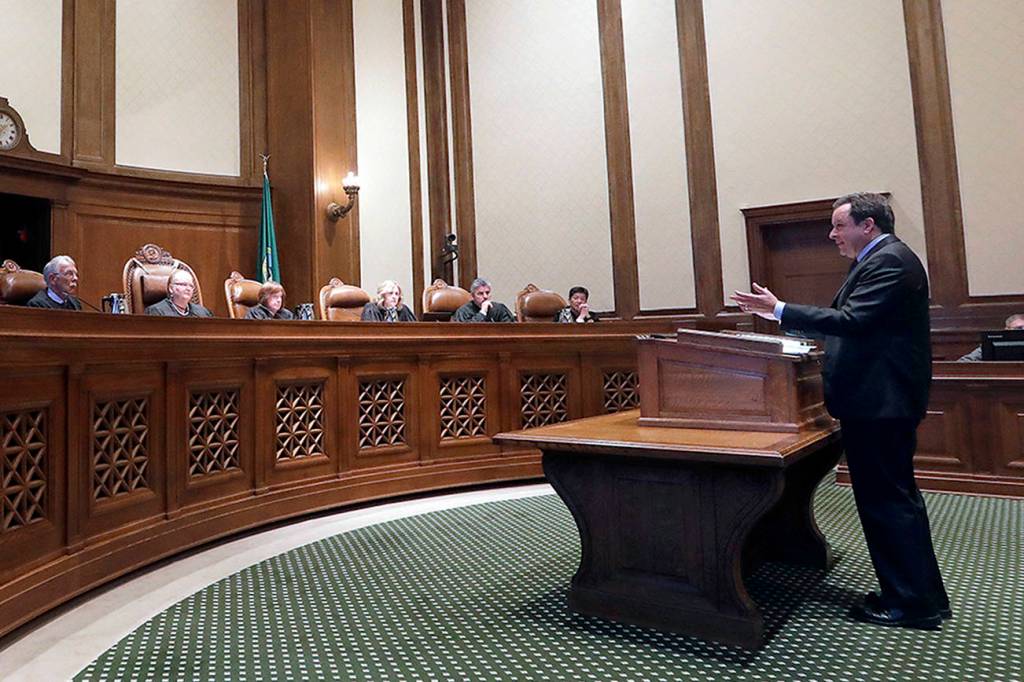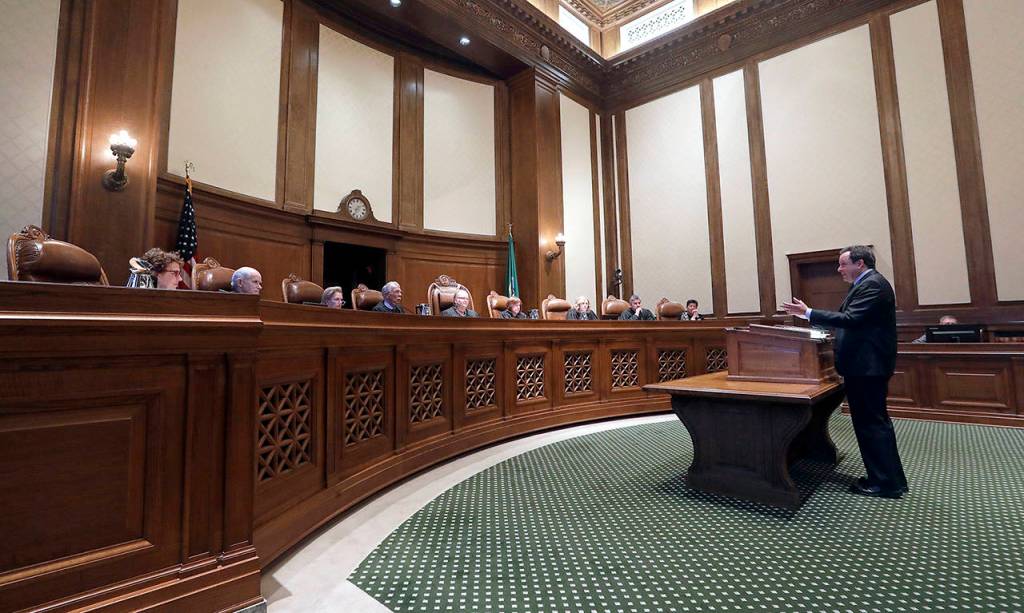Editorial: Montoya-Lewis, Whitener for state Supreme Court
Published 1:30 am Wednesday, October 21, 2020


By The Herald Editorial Board
The two newest justices on the Supreme Court of Washington State face challenges to keep their posts in the general election.
Four seats on the court are up for election, but Justice Charles W. Johnson and Chief Justice Debra L. Stephens are running unopposed, leaving Justices Raquel Montoya-Lewis and G. Helen Whitener to face opponents for the nonpartisan posts.
Justice Position No. 3
Montoya-Lewis, 52, was appointed to the court in December to succeed Chief Justice Mary Fairhust, who resigned following a cancer diagnosis. The election is for a full six-year term.
Montoya-Lewis is an enrolled member of the Pueblo of Isleta in New Mexico, and is the first Native American to serve on the state Supreme Court. Previously she served as a Superior Court judge in Whatcom County for five years, chief justice for Upper Skagit, Nooksack and Lummi Nation tribal courts and as an associate professor at Western Washington University’s Fairhaven College. Montoya-Lewis earned her law degree at the University of Washington School of Law in 1995 and a master’s in social work from the UW in 1996.
She is challenged by David Larson, 62, presiding judge of the Federal Way Municipal Court and former president and board member of the Federal Way School Board. A trial lawyer for 23 years, Larson earned his law degree from Seattle University in 1984. Larson unsuccessfully challenged Justice Charlie Wiggins for his seat in 2016.
In an interview last week with The Herald Editorial Board, Montoya-Lewis said that her experience as a judge for superior and tribal courts has provided a look at the challenges for both as well as the disparities between the two court systems. Tribal courts are underfunded and depend on grant writing for support, a skill that she developed in trying to help bolster and build court systems from the ground up. The same courts, she said, also are severely limited by federal law.
Montoya-Lewis is supportive of recent reforms and programs, such as drug courts and other supportive programs that offer alternatives to trial and sentencing but also sees a need for work beyond the courts within areas of schools, child welfare and substance abuse to address root causes of poverty and crime.
Larson, in news coverage, agrees with the benefits of reforms, and is seeking a post on the court to see that the perspectives of trial court judges are better represented so that they can guide those reforms.
Larson’s years of trial court experience and his work on a municipal court would be of value to the court, but Montoya-Lewis’ work as a superior court judge, tribal court jurist and an educator — and especially her perspective as a Native American woman — are invaluable to the court and the people of Washington state. The state’s voters should affirm her appointment.
Justice, Position No. 6
Whitener was appointed to the court this April, following the retirement of Justice Charles Wiggins. The election is for the remaining two years of Wiggins’ term and will be open for election again in 2022.
Whitener, 55, is the first Black woman to serve on the Supreme Court. She earned her law degree from Seattle University School of Law in 1998 and had served on the Pierce County Superior Court since 2015, winning election in 2016. Previously she served as a judge on the state board of industrial insurance appeals from 2013-15 and practiced law as a defense attorney and deputy prosecutor from 1999-2015. She has also served as co-chairwoman of the Washington State Minority and Justice Commission and on the Civil Legal Aid Oversight Committee.
Richard Serns, 59, has spent most of his career as an educator, including 17 years as a teacher and superintendent for the Federal Way School District and most recently as superintendent of the Winlock School District. His other work experience for school districts includes time as a human resource director and policy writer. He serves as an adjunct professor of school law for Seattle Pacific University. Serns earned his law degree from the University of Washington School of Law in 1999, but only this year took and passed the state’s bar exam.
The state constitution does not require justices to have served as a judge or have tried cases; only that they be licensed to practice law.
In news accounts, Serns has said that he has used his education in law in his work as a school administrator and that his career required in-depth knowledge of statutes and administrative codes from which he could draw on as a justice.
Whitener, however, in addition to her professional judicial and court resume, can draw on her experience as a Black immigrant from Trinidad and as an openly gay woman, just as Montoya-Lewis offers the perspective of a Native American woman.
The appointments of Whitener and Montoya-Lewis arguably have afforded the state the most diverse state supreme court in the nation, one that better represents the cultural makeup of the state, itself. Voters should retain Whitener on the court and secure that legacy for the state.




